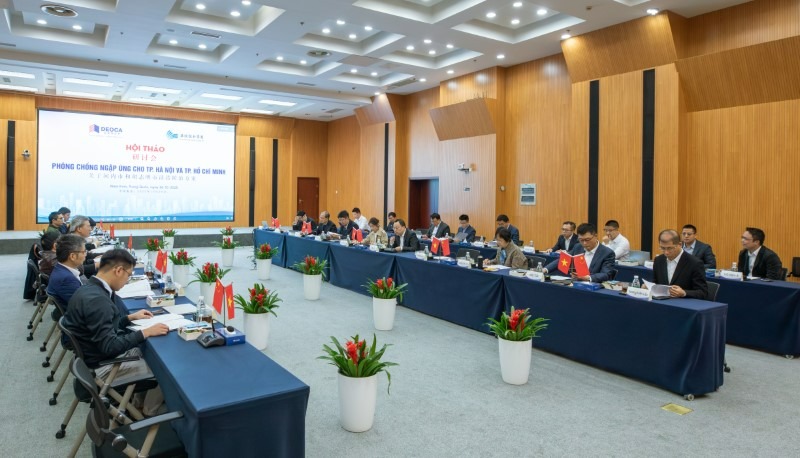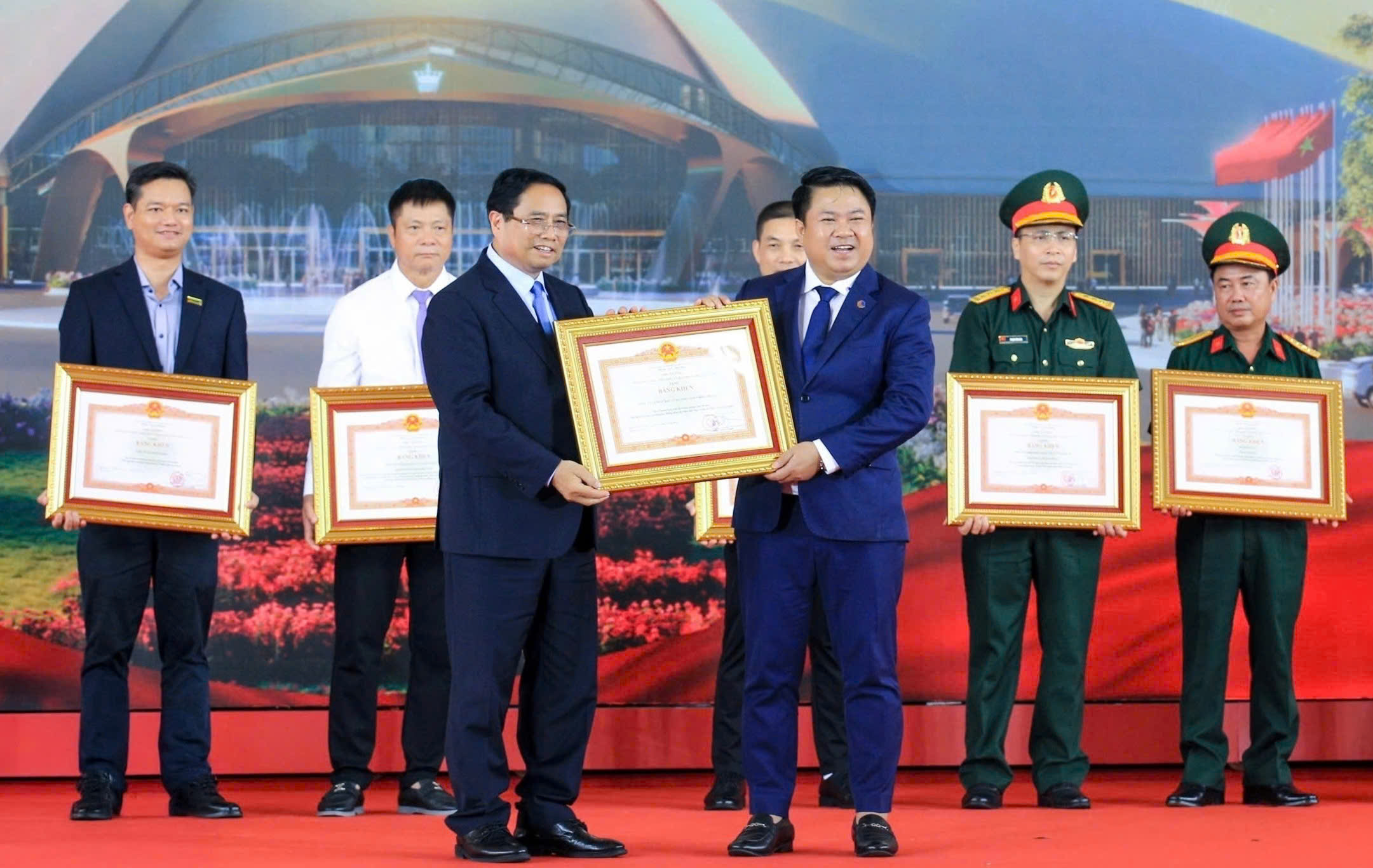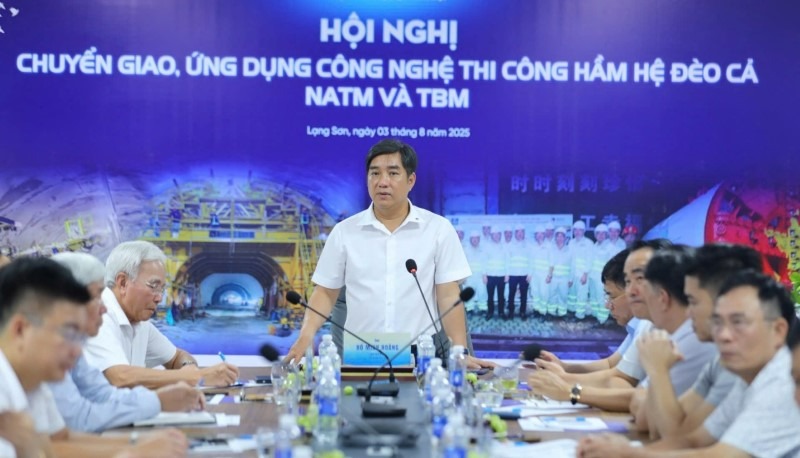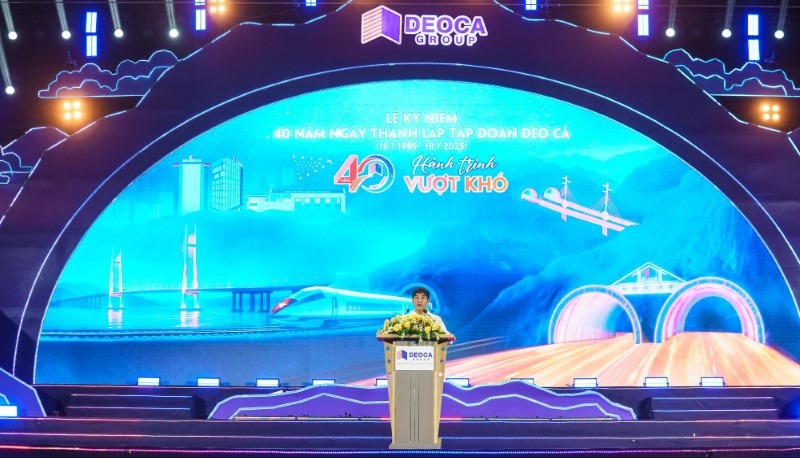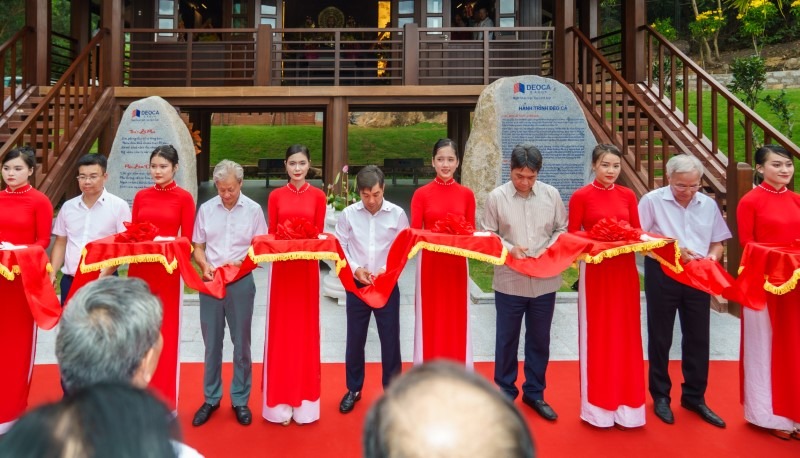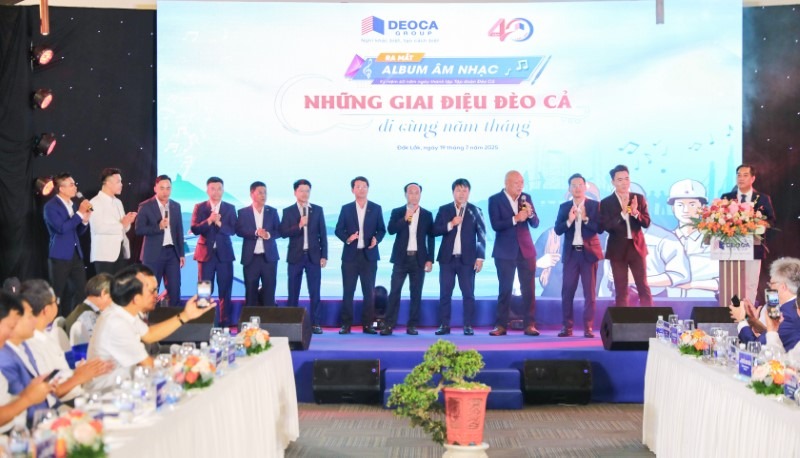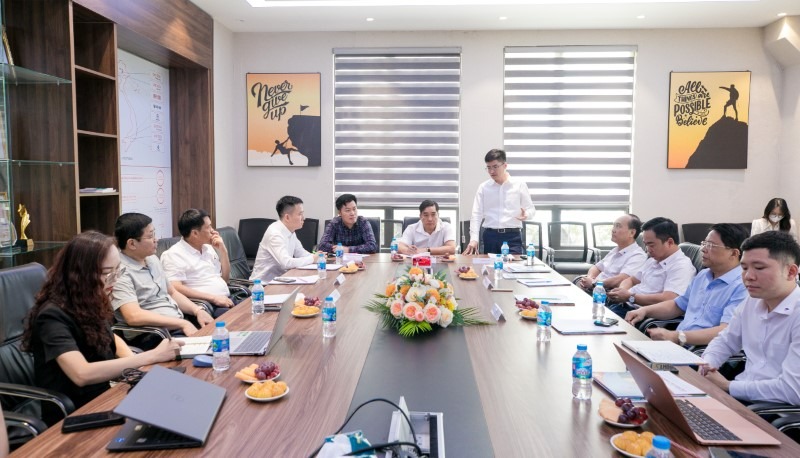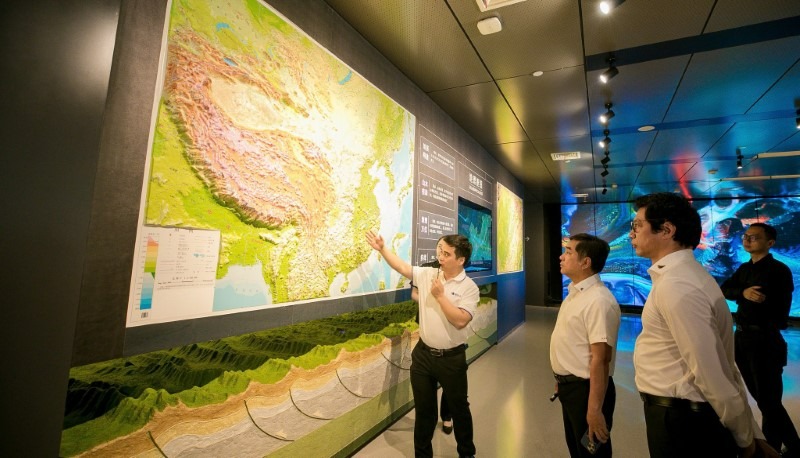With a long-term vision and a well-structured strategy, leading Vietnamese transport infrastructure enterprises such as DEOCA and Fecon are making comprehensive preparations in technology, human resources, and financial capacity to confidently take part in the implementation of urban railway (metro) and high-speed railway projects.
Developing a modern, synchronized transportation infrastructure system is currently one of the most urgent tasks. Railway, in particular, represents a vital component, with total investment estimated to reach tens of billions of USD from now until 2035. To meet the scale and complexity of these key projects, both domestic and international enterprises need to prepare thoroughly as well as participate jointly.
First Vietnamese business to directly purchase a TBM
The tunnel boring machine (TBM) is a modern and indispensable piece of equipment for metro construction, offering optimal efficiency in speed, safety, and minimizing environmental impact. However, previous metro projects in Vietnam have typically depended on foreign contractors who owned TBMs.
On July 8, in Hanoi, DEOCA Group signed an agreement to purchase TBM equipment from China Railway Construction Heavy Industry Corporation (CRCHI) - the world’s largest TBM manufacturer and its authorized distributor in Vietnam, TCE Equipment and Services JSC. This event marks the first time a Vietnamese enterprise has directly negotiated and executed the purchase of TBM equipment.
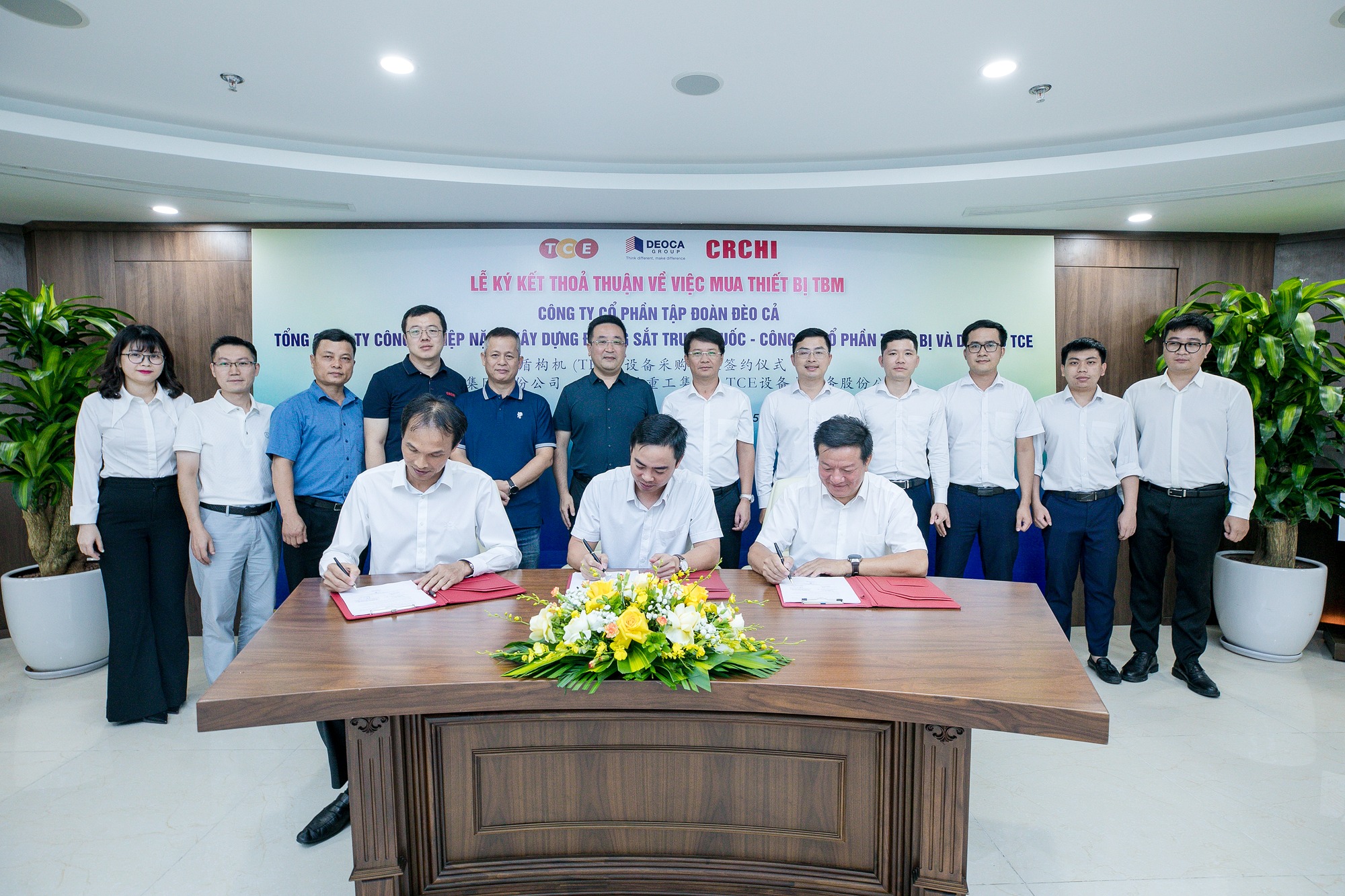
The signing ceremony for the procurement agreement of TBM equipment between DEOCA Group and China Railway Construction Heavy Industry Corporation (CRCHI).
Mr. Phan Van Thang, Vice Chairman of the Board of Directors of DEOCA Group, stated: “The agreement is not just about purchasing equipment, it reflects our strategic and pioneering vision to master technology, reduce dependence, cut costs, and enhance the competitiveness of Vietnamese enterprises. This enables DEOCA to confidently enter the new field of metro construction.”
“From now until 2035, Vietnam is expected to invest tens of billions of USD in urban railway and high-speed railway lines. This is an opportunity that DEOCA intends to seize systematically. Today's signing ceremony lays the foundation for comprehensive preparation in engineering, human resources, and technology to participate in bidding and execution phases,” Mr. Thang added.
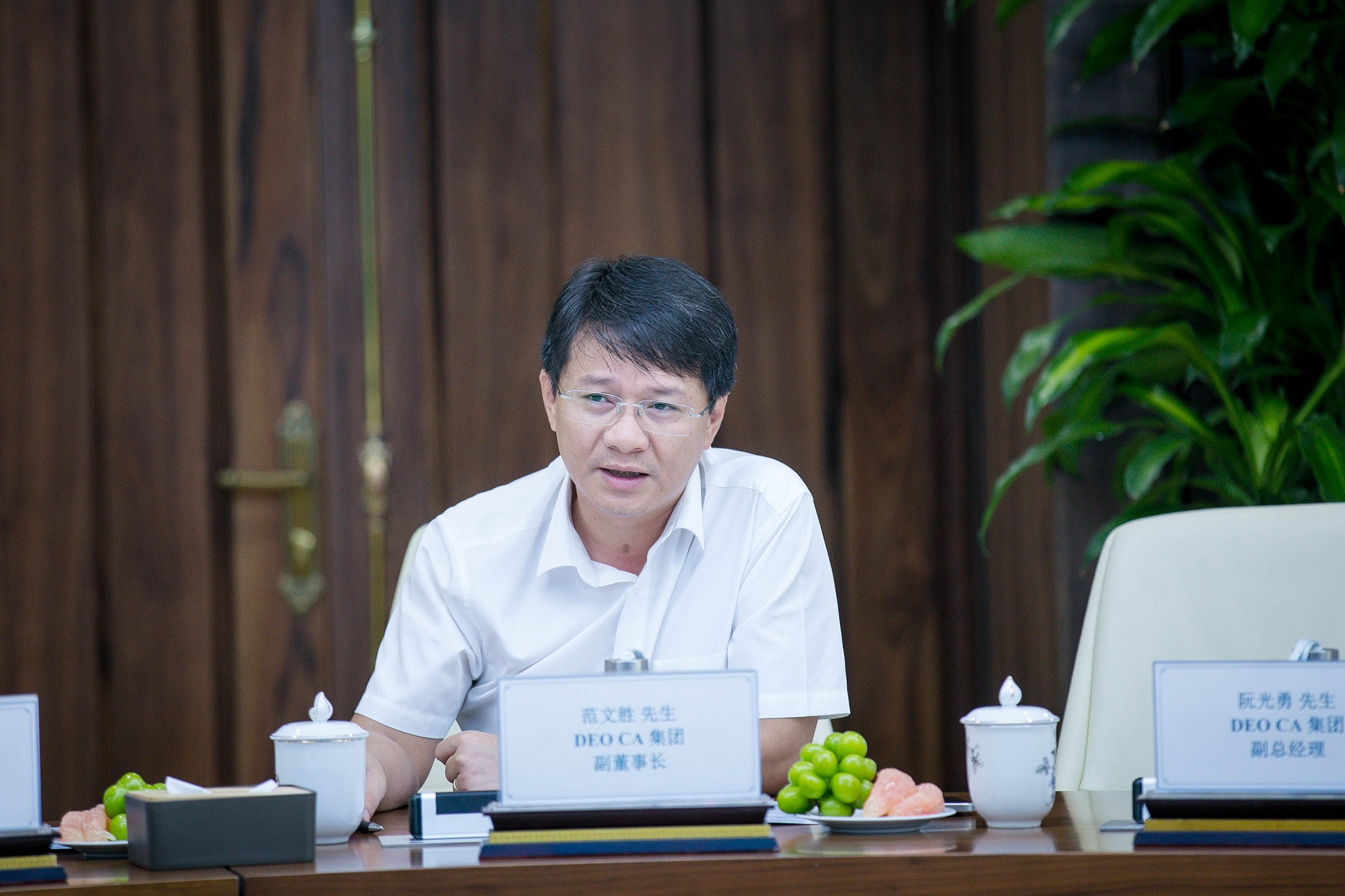
Mr. Phan Van Thang, Vice Chairman of the Board of Directors of DEOCA Group spoke at the signing ceremony.
On behalf of the partner, Mr. Duong Phuong Minh, CRCHI’s Asia Regional Marketing Director, affirmed that the newly signed cooperation agreement among the three parties goes beyond equipment supply, it is a long-term strategy to jointly develop modern infrastructure construction capabilities in Vietnam.
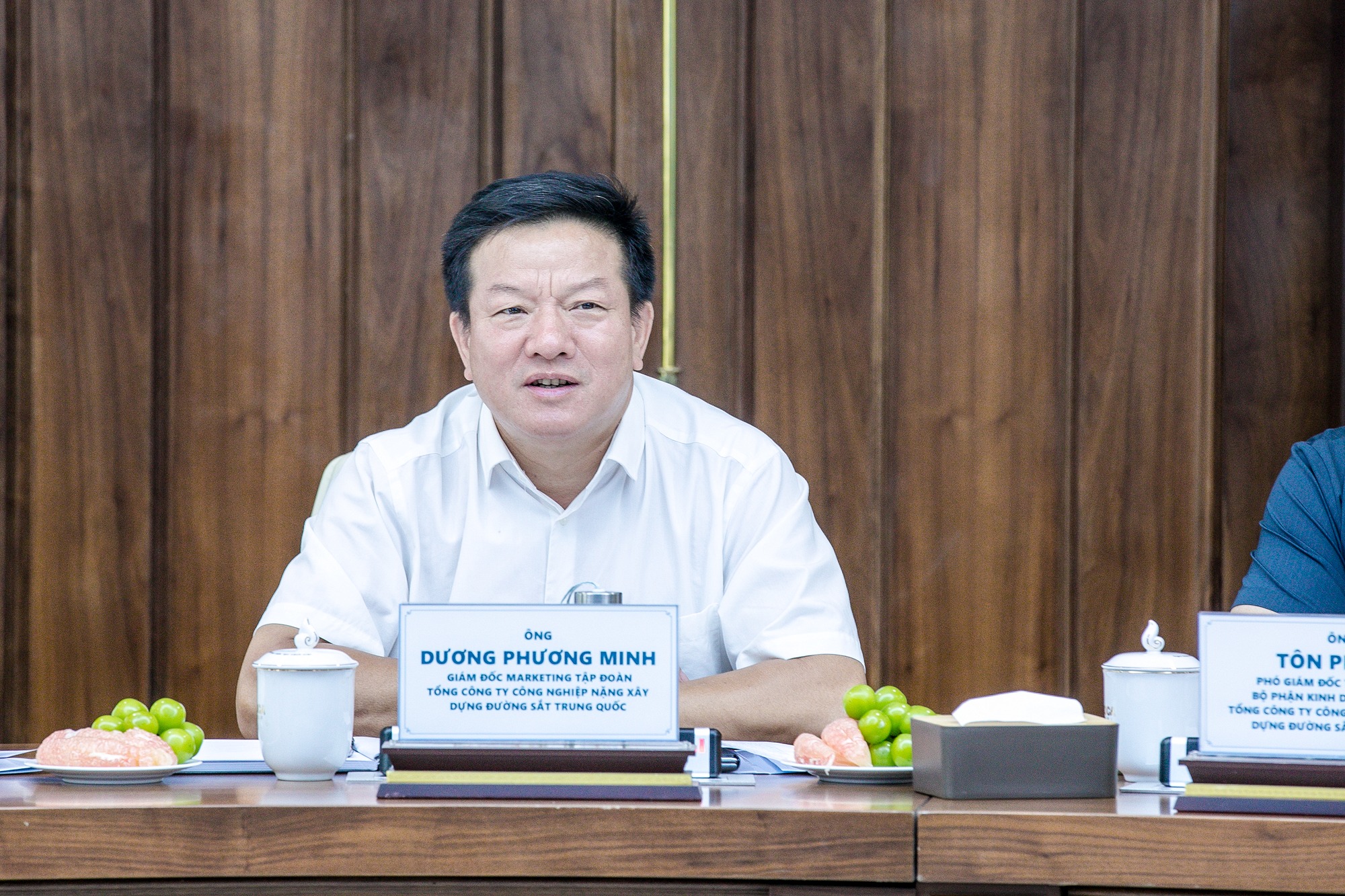
Mr. Duong Phuong Minh, CRCHI’s Asia Regional Marketing Director spoke at the signing ceremony.
Developing human resources, mastering technology
Alongside technology investment, enterprises are focusing on building high-quality human resources. According to Mr. Nguyen Quang Huy, General Director of DEOCA, TBM operations require a closed process and a professionally trained workforce. Therefore, the company is combining domestic and overseas training to master core technology.
“DEOCA Group has extensive experience in mountain-crossing tunnel construction using NATM technology, but using TBM in metro tunneling construction is new. During technology transfer and personnel training, we will continue learning from CRCHI experts. Right after today’s signing, we will form a working group with partners to start specific tasks,” Mr. Huy said, adding that DEICA aims to master core technologies in high-speed and metro railway construction.
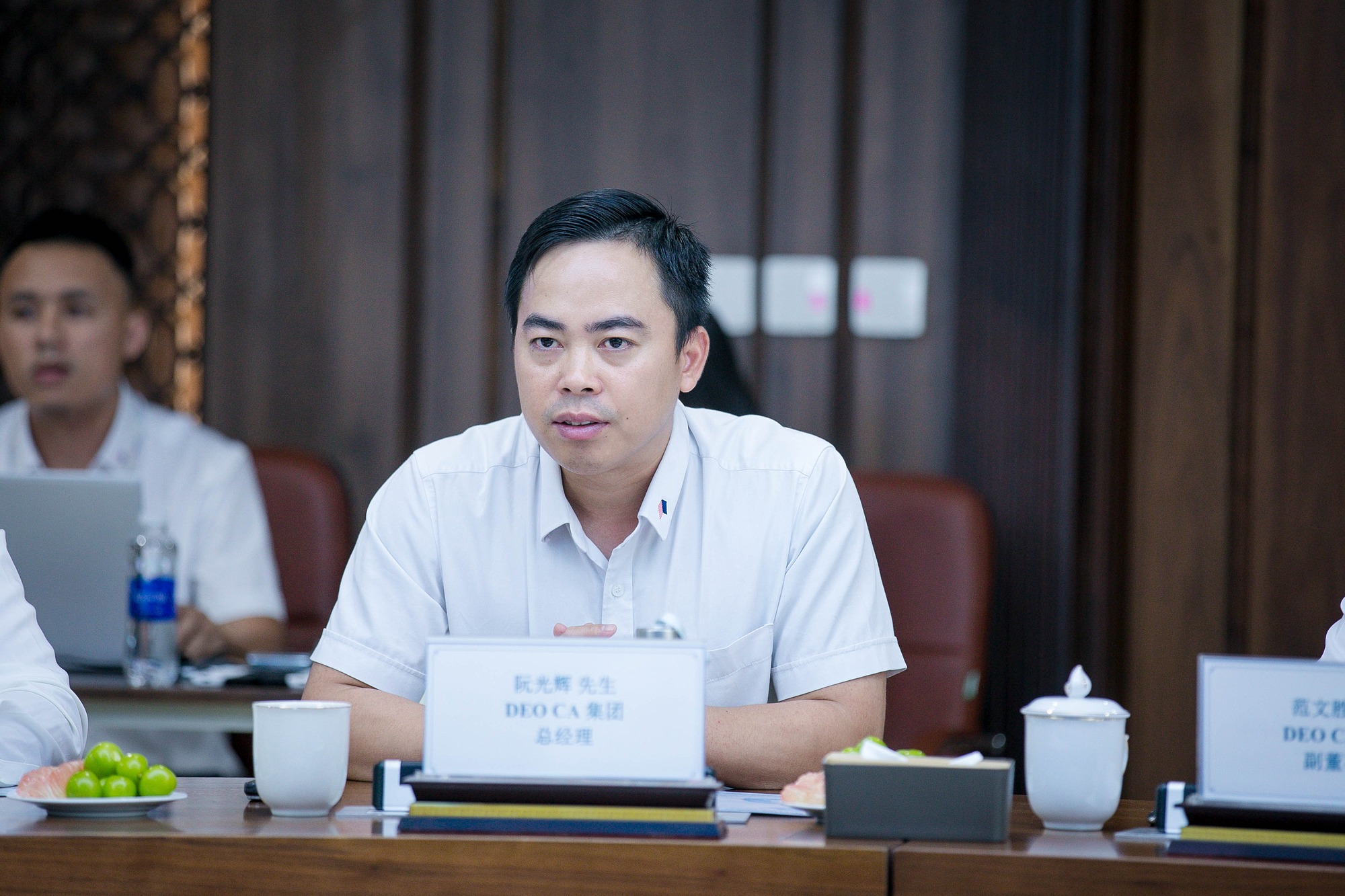
Mr. Nguyen Quang Huy, General Director of DEOCA Group spoke at the signing ceremony.
Earlier, in May 2025, DEOCA Group sent a team of engineers and technical workers to participate in an advanced training program on TBM tunneling technology organized by China Railway Construction Corporation’s second bureau.
The program also provided trainees with underground construction knowledge from top experts in China. In addition to theory, they directly observed TBM operations on-site of the underground section at Guangzhou - Dongguan - Shenzhen intercity railway tunnel project (design speed of 120 km/h, total length of 80 km) and the Longcheng station of the Shenzhen - Huizhou intercity railway.
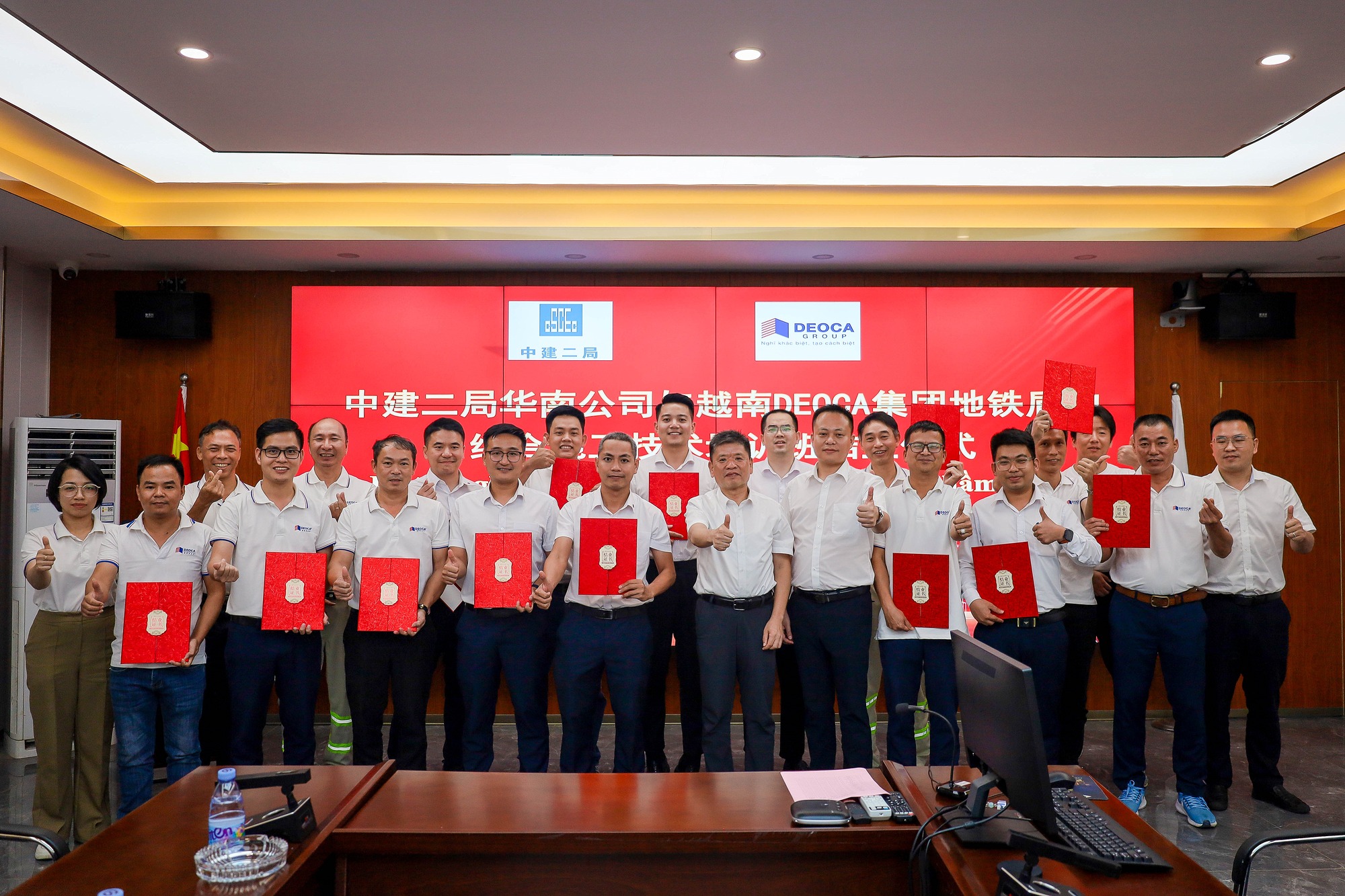
Graduates of the advanced training program on tunnel construction technology using TBM equipment.
Determined to invest methodically in human resources to master technology, along with its advanced training program in China, DEOCA has also sent nearly 200 other employees to attend a railway engineering training course at the Ho Chi Minh City University of Transport since the beginning of 2024. The first cohort is expected to graduate as early as this August.
With a long-term vision, DEOCA Group is planning to implement joint training programs with domestic universities and colleges, as well as establish connections with overseas institutions such as Guangzhou Railway Polytechnic (China) and Wuhan Railway Vocational College. The goal is to develop and optimize training programs in the railway sector. The first courses are expected to commence in August and September, gradually building a capable workforce for major transportation infrastructure projects, particularly the North - South high-speed railway.
Partnerships and joint ventures to strengthen financial resources
To ensure the capability to deliver large-scale metro and high-speed railway projects, Vietnamese enterprises are proactively forming alliances with domestic and international partners to form a consortium with strong financial resources and experience.
Recently, the DEOCA-Fecon-PowerChina-Sucgi joint venture, which is represented by DEOCA, submitted a proposal to the Ho Chi Minh City People’s Committee. They requested the application of the special mechanisms under Resolution 188 of the National Assembly to directly assign key metro projects, such as metro line 2 (Ben Thanh – Tham Luong section) and other urban railway lines in Ho Chi Minh City.
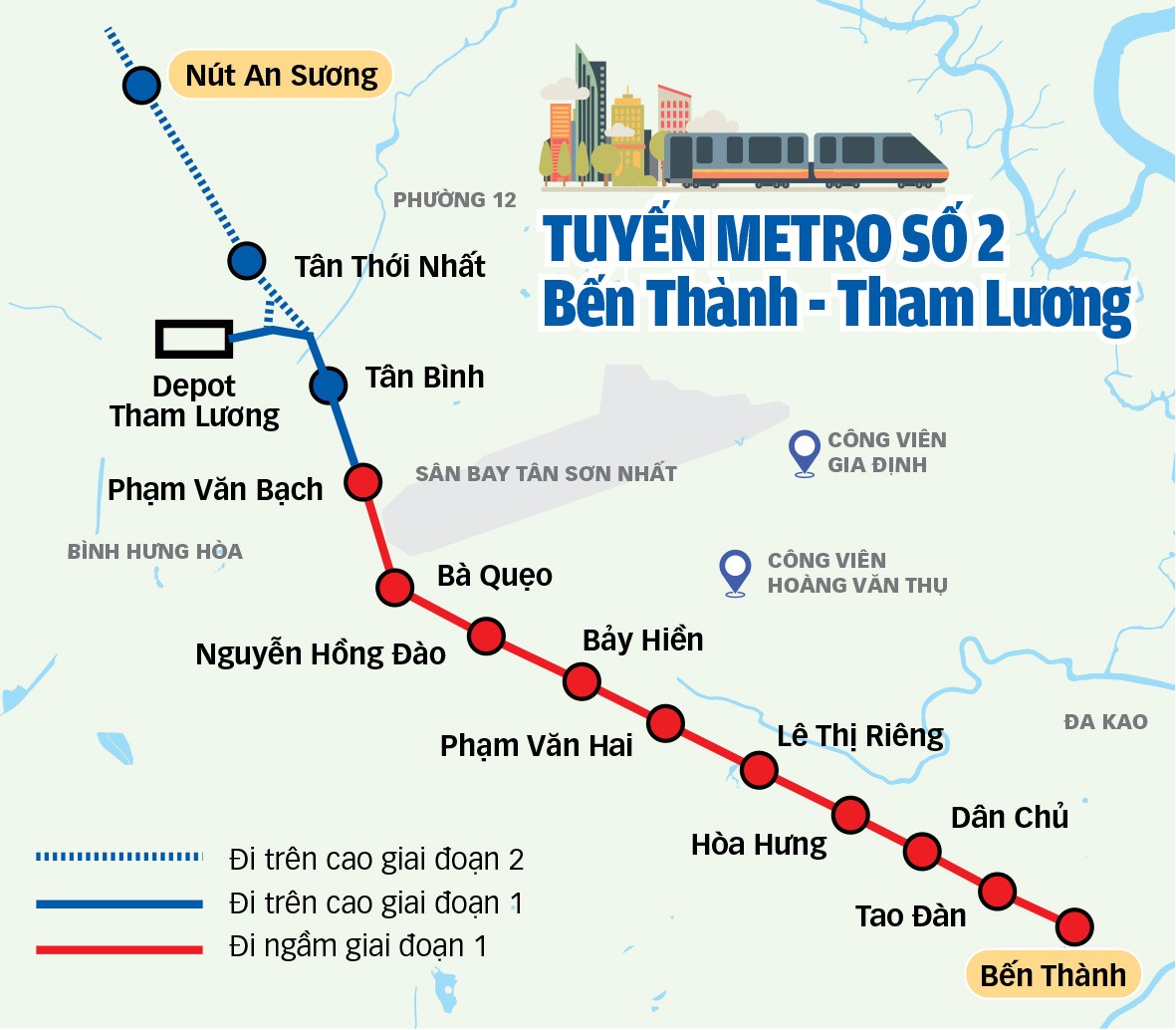
The joint venture commits to implementing projects under an EPC (engineering, procurement, and construction) model, with DEOCA and Fecon mobilizing trained personnel and the newly invested TBM equipment to execute construction and operations, ensuring quality and progress. Vietnamese enterprises will fully control the technology, avoiding foreign technological monopolies.
Other domestic corporations such as Sovico Group, Thaco Group, and the Dai Dung - CC1 - Hoa Phat joint venture have also expressed interest in participating in metro and railway projects, reaffirming the readiness of domestic enterprises.
The cooperation of domestic enterprises, along with support from international partners, is expected to generate abundant financial resources while bringing valuable experience in constructing thousands of kilometers of railway that these partners have completed worldwide.
With thorough preparations from personnel, machinery, and technology, to strong joint ventures, Vietnamese enterprises are building a solid foundation to undertake upcoming major railway projects, including cross-border railway links to China, the North - South high-speed railway, and urban railway systems in Hanoi and Ho Chi Minh City.
News: Hieu Nguyen


